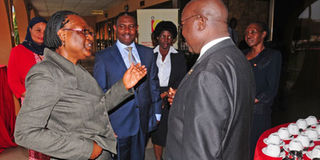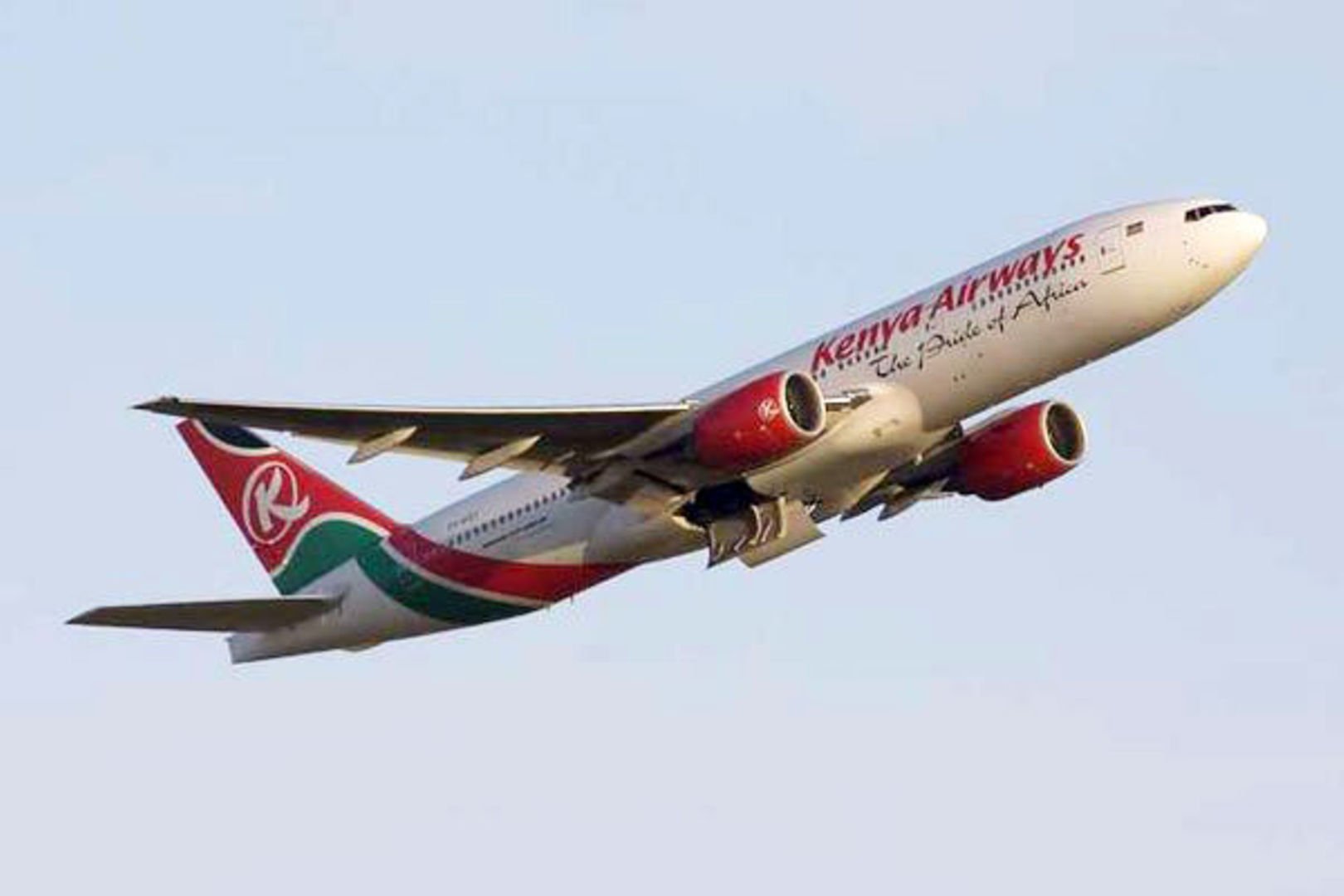Have we hit a wall in the fight against corruption?

Strategy. Inspector General of Government Irene Mulyagonja (left) and minister of Ethics and Integrity Simon Lokodo (right) during a workshop to discuss the amended Leadership Act, 2017, in Kampala on Wednesday.
PHOTO BY STEVEN OTAGE
What you need to know:
Dead end. This week’s declaration of a new strategy by the IGG is only the latest in a series of moves that have been made in the name of fighting corruption. But some analysts dismiss it as a lost cause.
On Wednesday during a workshop to discuss the amended Leadership Act 2017, it was announced that public servants and politicians will with effect from March next year be required to disclose the cash they have at hand when declaring their wealth to the government ombudsman.
“We have realised that several public servants and leaders do not declare their actual amount of money. We have now introduced a requirement to declare your cash at hand. People are keeping their money at home, offices and in ceilings. We shall demand one to declare cash starting from Shs5m and above,” Mr Amos Baguma, an officer attached to the Inspectorate of Government (IGG), told the workshop.
We are once again at that point when we ask questions around this law. Is it good? Is it practical? Will it deliver?
“It is a good move, but the practicability and enforceability are the issue. It is very much dependent on the goodwill of the individuals concerned and the whistle-blowers. Otherwise how will the IGG know that someone has a lot more cash than the person is declaring?” wonders the executive director of the Anti-Corruption Coalition, Ms Cissy Kagaba.
Latest in a series of moves
Wednesday’s declaration is only the latest in a series of moves that have been made in the name of fighting corruption.
In July 2011 ministry of Finance officials attempted to sneak a law that would have required anybody making a purchase of land or any property worth Shs50 million and more to declare his/her source of income to Uganda Revenue Authority (URA).
At some point there was talk about a lifestyle audit to weigh public servants expenditures against their incomes.
In March this year URA wrote to commercial banks directing them to submit details of their customers for purposes of tax assessment. In June, while delivering his 2018 State-of-the-Nation address, President Museveni announced the formation of a State House-based Anti-Corruption Unit, to which he said the public could report cases of corruption.
Early in July the ministry of Lands issued new guidelines that require both the seller and buyer of land to make a physical appearance at its offices and state the prices at which the land was bought and provide proof of payment in the form of a bank deposit slip before land titles can be transferred.
The moves on the part of the ministry of Finance and URA were shot down by Parliament amid questions about their legality and the impact that they would have on the economic landscape. The legality of Mr Museveni’s Anti-Corruption Unit and the directives of the ministry of Lands are now being questioned and it is highly likely that they too, shall be shelved.
One now wonders why the fight has come down to the President and government agencies being compelled to consider making moves that border on illegality in the name of fighting corruption. Have we as a country been boxed so tightly into a corner in this fight that we cannot come up with a working solution?
Ms Kagaba believes that the fight has been lost. She argues that while Uganda has many good laws that would have been used to stump out corruption, they have not been put to good use. This, she says, explains why there are many moves being made in the name of fighting corruption.
“We are merely firefighting. There is no political goodwill to fight corruption. Is starts with the lawmakers,” she says.
Ms Kagaba argues that she had appeared before the Parliaments’ Legal and Parliamentary Affairs Committee and made a case for introduction in the Leadership Code a provision that would require the assets of spouses and children of public servants and politicians declared, but legislators shot the idea down.
She accused MPs of selfishness, accusing them of only passing pieces of legislation that do not directly affect them, which Parliament’s director of communications, Mr Chris Obore, does not agree with, saying her comments are speculative.
“Laws have to be aligned to the Constitution and are passed after many considerations, including the rights of individuals.
Many times MPs do consultations with many groups. Laws could be passed the way they are because of the feedback from those consultations,” Mr Obore said in defence of Parliament.
So where does all this leave the country?
“It is a lost fight. We need genuine action from the President. Otherwise coming up with many laws will not help,” Ms Kagaba says.
Senior presidential press secretary Don Wanyama is quick to leap to the defence of his boss, saying most of the anti-graft laws including the Leadership Act and institutions such as the IGG are Mr Museveni’s brainchild, but that the President should not be expected to run around supervising those agencies.
“The President has severally been forced to take action which naturally would have been done by agencies mandated to fight graft. Isn’t it the President who got Ministry of Finance officials arrested for seeking bribes? Isn’t it the President who suspended his minister for Labour and ordered his prosecution over claims of bribery? What do you call that if it is not proactive action from the President?” he argues.
Yes. One has to give it to Mr Museveni that he has been quite proactive, but for as long he and government agencies seem to be groping in the dark about how to nail it, whether the country has been run into a corner in the fight against corruption will remain a mouthful of a question.
Attempts at fighting corruption
In July 2011, ministry of Finance attempted to sneak a law that would have required anybody making a purchase of land or any property worth Shs50m and more to declare his/her source of income to URA.
At some point there was talk about a lifestyle audit to weigh public servants’ expenditures against their incomes.
In March this year, URA wrote to commercial banks directing them to submit details of their customers for purposes of tax assessment.
In June, President Museveni announced the formation of a State House-based Anti-Corruption Unit.




